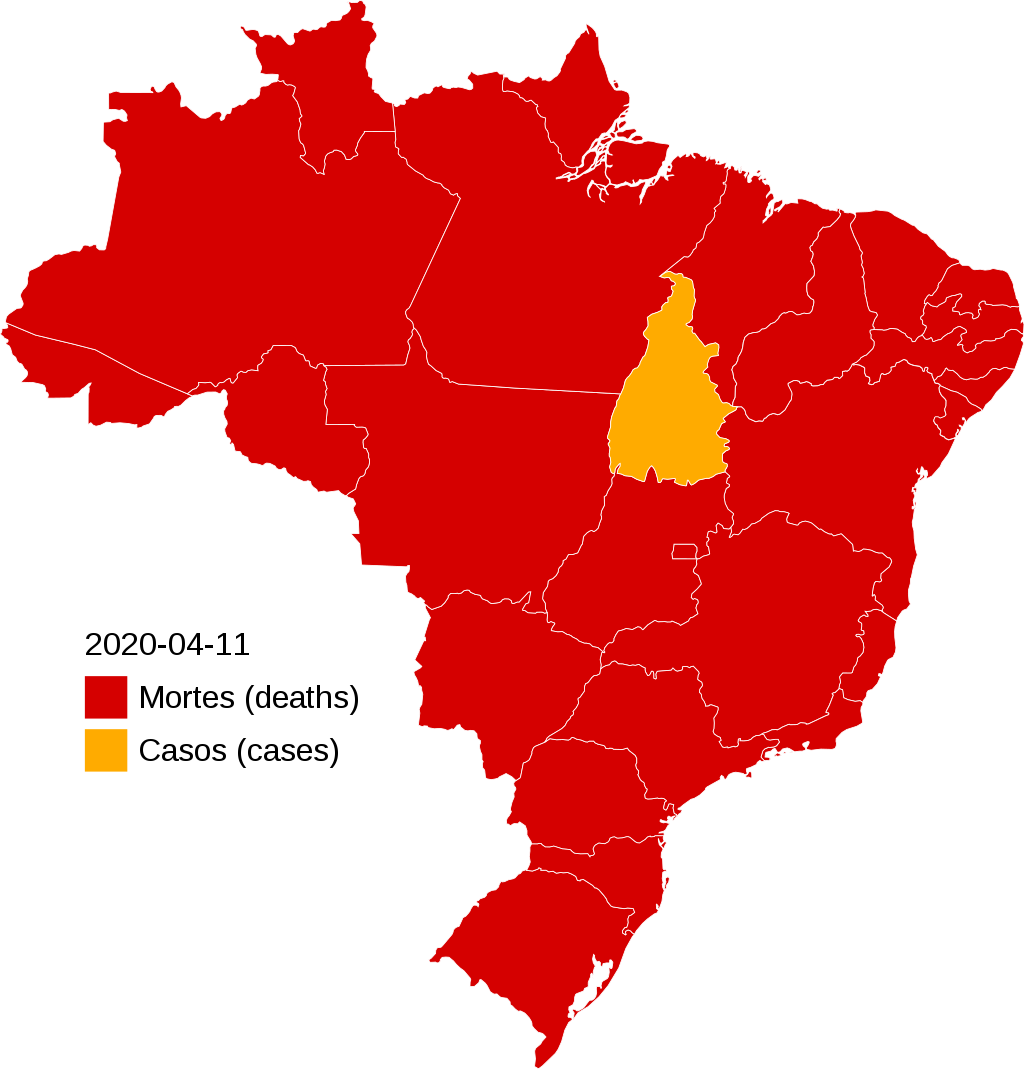Is Latin America the Next COVID-19 Hotspot?
COVID-19 has reached all regions of Brazil, with deaths due to the virus in all but one state. (Wikimedia)
COVID-19 is a minuscule virus with the proven ability to turn the world upside-down in a matter of weeks. The rapid transmission of this disease has left governments in disarray, incapable of protecting their people from the dangerous social, political, and economic ramifications of this global crisis. Latin America has been overlooked in the international arena as a critical area to contain the spread of the disease: does this provide the conditions for Latin America to become the next COVID-19 hotspot?
Latin American countries have adopted different methods to deal with (or ignore) the virus. Brazil currently faces the most severe outbreak with 3,417 cases and close to 100 deaths. This can be attributed to President Jair Bolsonaro’s denial of the severity of the virus, the New York Times reports. In Ecuador, where the number of cases is nearing 2,000, Fox News reports that cities have begun strictly-enforced lockdowns. While countries such as Panama, Peru, Argentina, Mexico, the Dominican Republic, Colombia, and Venezuela have not yet reached a reported infected population of 1,000 people, they all lack firm policies and procedures to contain the spread of the virus.
Past trends in other parts of the world indicate that a lack of preventative measures sets the region up for a dramatic rise in cases and deaths in the near future. A refusal to learn from the examples of other countries caught unprepared, like the United States and Italy, puts the lives of vulnerable populations within Latin America at even greater risk.
In the past year, many Latin American countries have struggled with large-scale citizen protests and economic stagnation. These issues will only be intensified with the spread of COVID-19 in the region. And, due to a lack of accurate information-collection techniques, it will be difficult to assess the severity of the virus until the impacts are too obvious to ignore. To avoid this, Latin American countries must take action now to curb the spread of the virus and protect their people.

